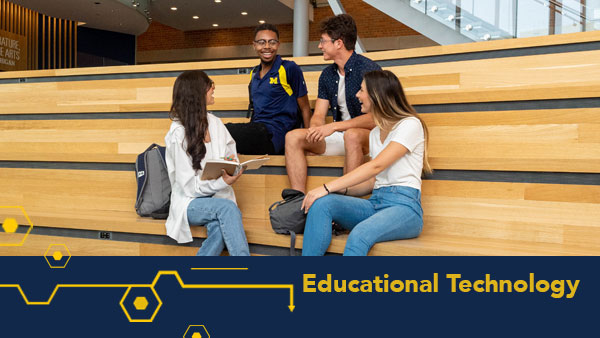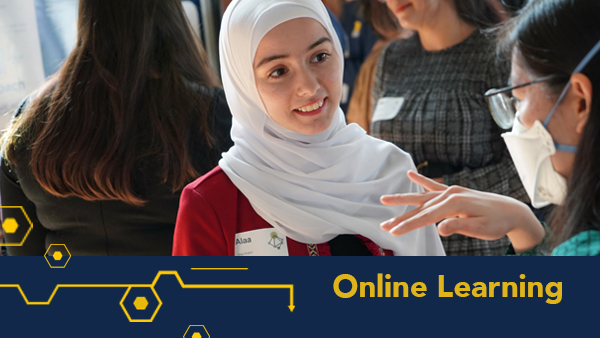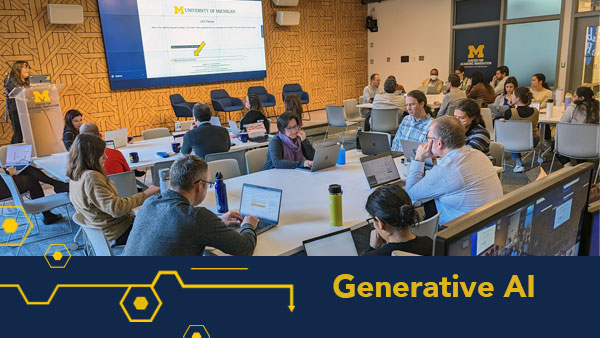Amy Homkes-Hayes, Lead Innovation Advocate
@amynhayes
“Let’s take a leadership role in edtech since it’s part of our core business,” said Candace Thille, former Assistant Professor of Education at Stanford and current Director of Learning Science and Engineering at Amazon, in a recent webinar on the evolving role of faculty in an era of increasing digital education technology. This is what we are doing in the Office of Academic Innovation, where we launched a “homegrown” edtech accelerator that’s building and scaling digital pedagogy within and beyond the University of Michigan.
What happens to faculty technological innovation?
In many instances its usefulness does not extend beyond the academic departments in which it was born. Why? Because the infrastructure does not exist to scale it. The Office of Academic Innovation solves this problem by providing a team of software developers, user experience designers, and behavioral scientists, who work with faculty champions, to iterate quality educational technology. The Office of Academic Innovation, then, can do what faculty and departments cannot do on their own-grow educational technology tools from innovation to infrastructure, personalizing education at scale.
What’s the Office of Academic Innovation Building?
We started building software in 2015, and currently have seven tools in our portfolio. Although diverse, these tools all center on the intersection of teaching and learning and technology. Some, like ViewPoint, make it easier for faculty to implement simulation pedagogy. ViewPoint takes what was a paper and pencil process and is now a web-based application for instructors to plan, and students to execute, a deep learning experience. Hear more about the origins of ViewPoint in my recent podcast with ViewPoint creator, Dr. Elisabeth Gerber.
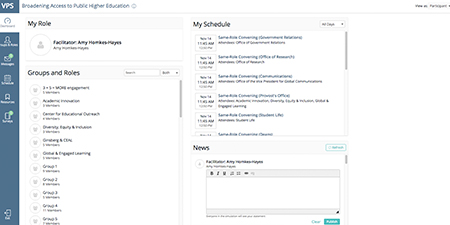
Others, like ECoach, are tailored communication systems providing individualized messages to students in large courses, increasing engagement with, and ultimately the academic success of, learners. ECoach uses complementary data streams including institutional, course, and data students submit themselves to provide timely and personalized messages on how to navigate big classes, where faculty cannot provide ample individualized attention to every student (our Statistics 250 class, for example has upwards of 2,000 students enrolled in it every fall and winter term).
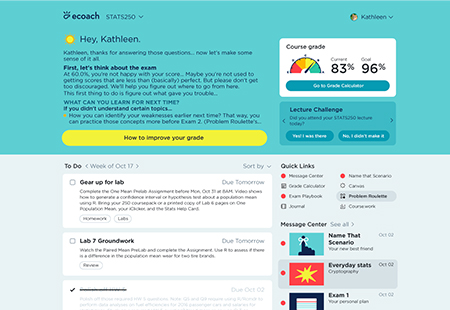
ART 2.0 visualizes course and instructor data in meaningful ways to help guide class discovery and selection. ART 2.0 helps bust myths on the University of Michigan campus about things like “the workload in this class is overwhelming” or “no one ever gets an A in this course.”
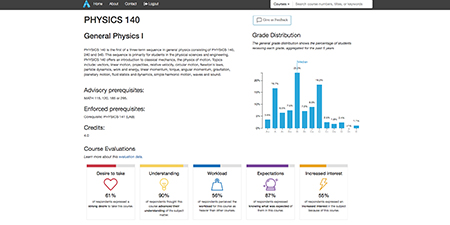
M-Write, founded on writing-to-learn pedagogy, uses smart software to more easily implement writing exercises in large STEM courses. The M-Write team has developed and implemented a dashboard and process for peer reviews so students can evaluate one another’s work on concepts in courses like chemistry and economics. M-Write integrates seamlessly with the Canvas Learning Management System for a positive user experience for students.
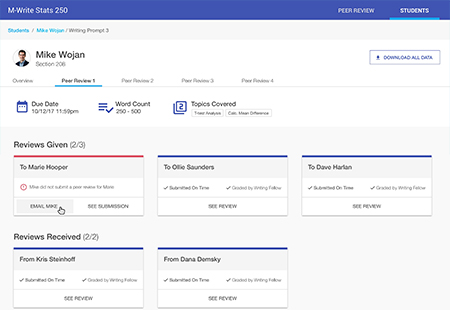
These examples showcase the breadth of technological innovation happening in the Office of Academic Innovation, while not minimizing its focus on improving teaching and learning through digital intervention.
How does the Office of Academic Innovation increase the number of faculty and courses employing its tools while ensuring the pedagogy on which our tools rely scales in parallel with the technology?
In the Office of Academic Innovation we grapple with this question as we try and learn from diverse strategies that increase faculty engagement with our digital tools. When we talk about our work and our team we say we blend thought partnership with exemplary service. This approach embodies how we work with faculty in adopting our tools. Some teams, like ECoach, invite faculty to work with them frequently throughout an academic term on the content and cadence of how messages are delivered to students. Other teams, like Gradecraft, host communities of practice to ensure that pedagogy and technology are not divorced from one another as our user bases expand. We know, for example, that embracing gameful pedagogy including concepts like giving students many choices in course assignments and helping them try (and sometimes fail) assignments without jeopardizing their grade are core tenets of gameful course design. Not only do we offer faculty who collaborate with us opportunities to help inform new iterations of our tools, but we also use our software to conduct teaching and learning research. For example, we have used data collected in tools like Problem Roulette and ECoach to study gender performance differences in STEM courses.
Our approaches to partnering with faculty to scale our digital educational technology will continue to expand as our user base does too, positively changing the teaching and learning landscape at the University of Michigan in its third century.
Amy Homkes-Hayes will present on “Growing Digital Pedagogy in the Office of Academic Innovation at the University of Michigan” this week at the 2018 OLC Innovate Conference in Nashville, TN where her talk has been awarded “Best in Track” in Effective Tools, Toys, and Technologies.
